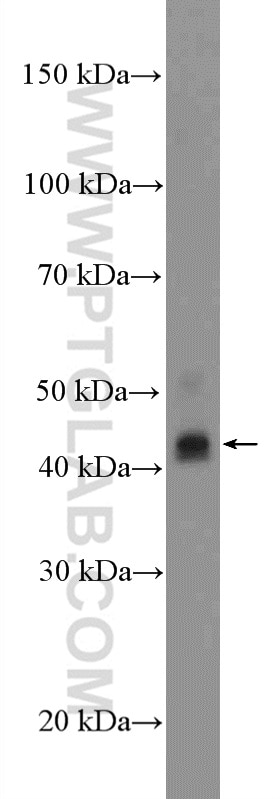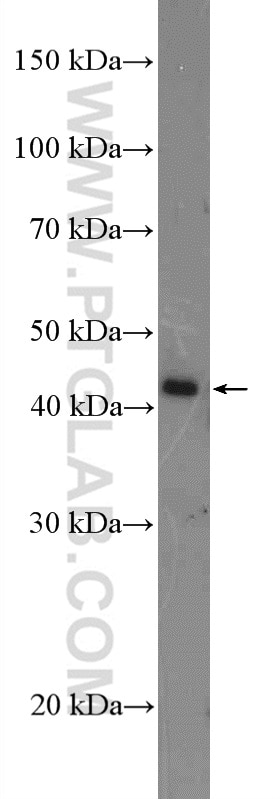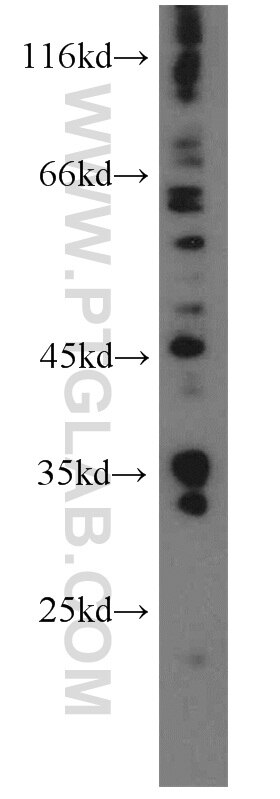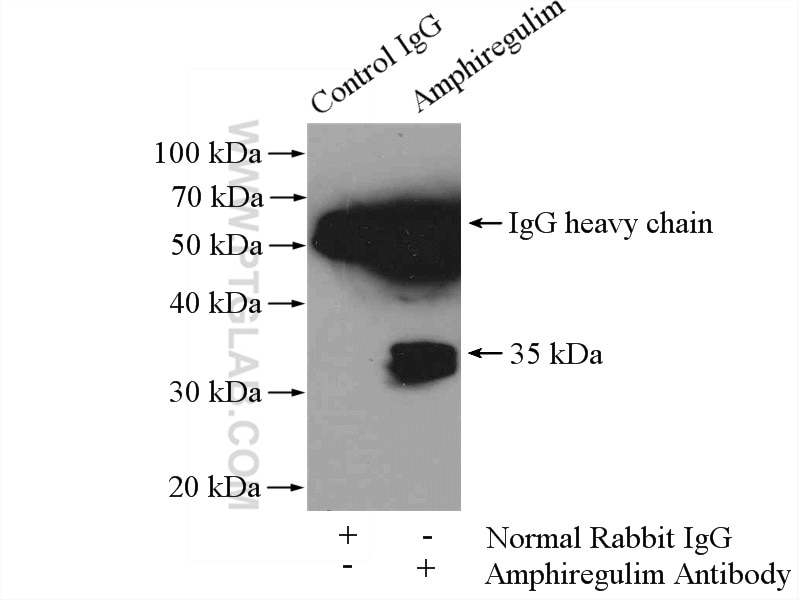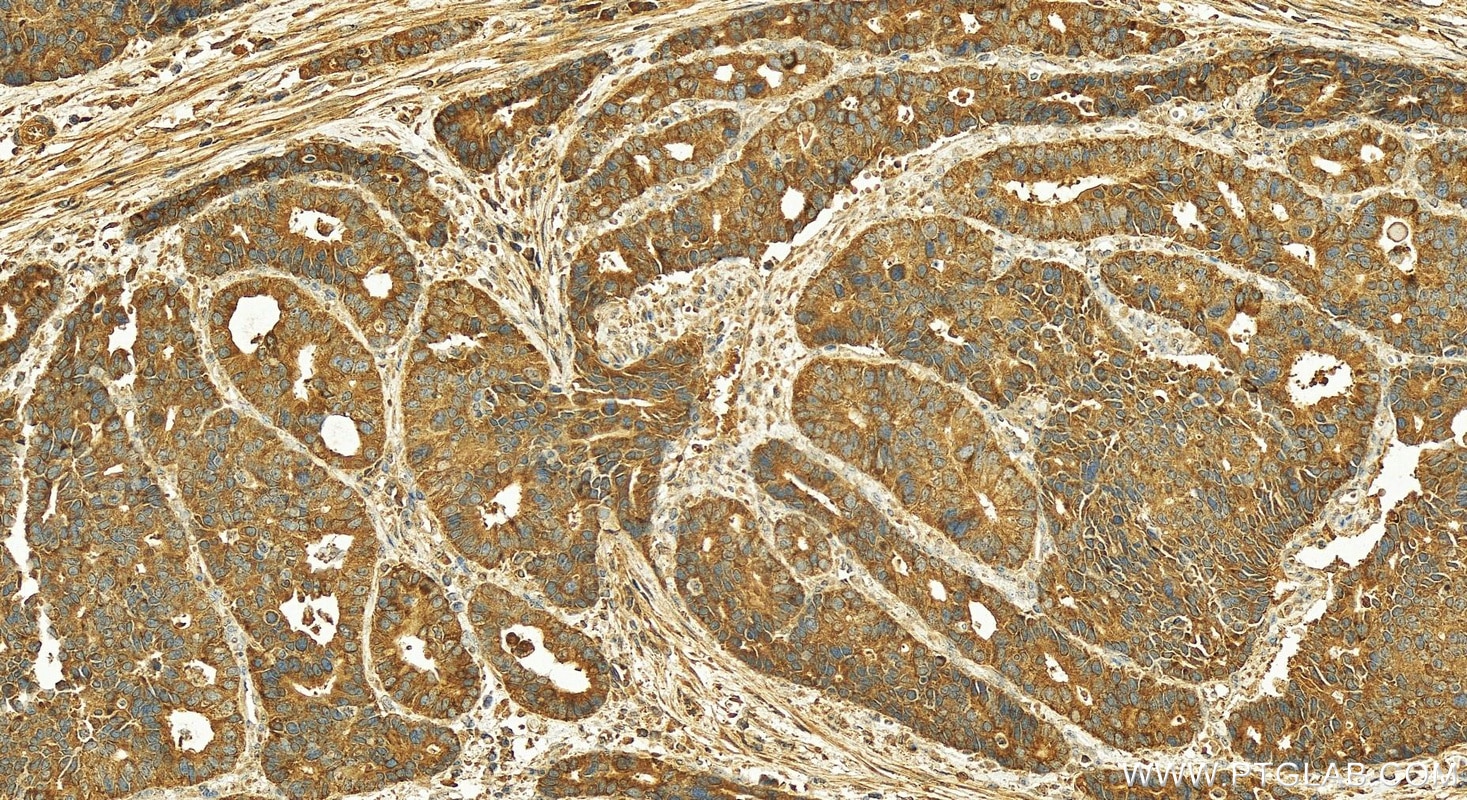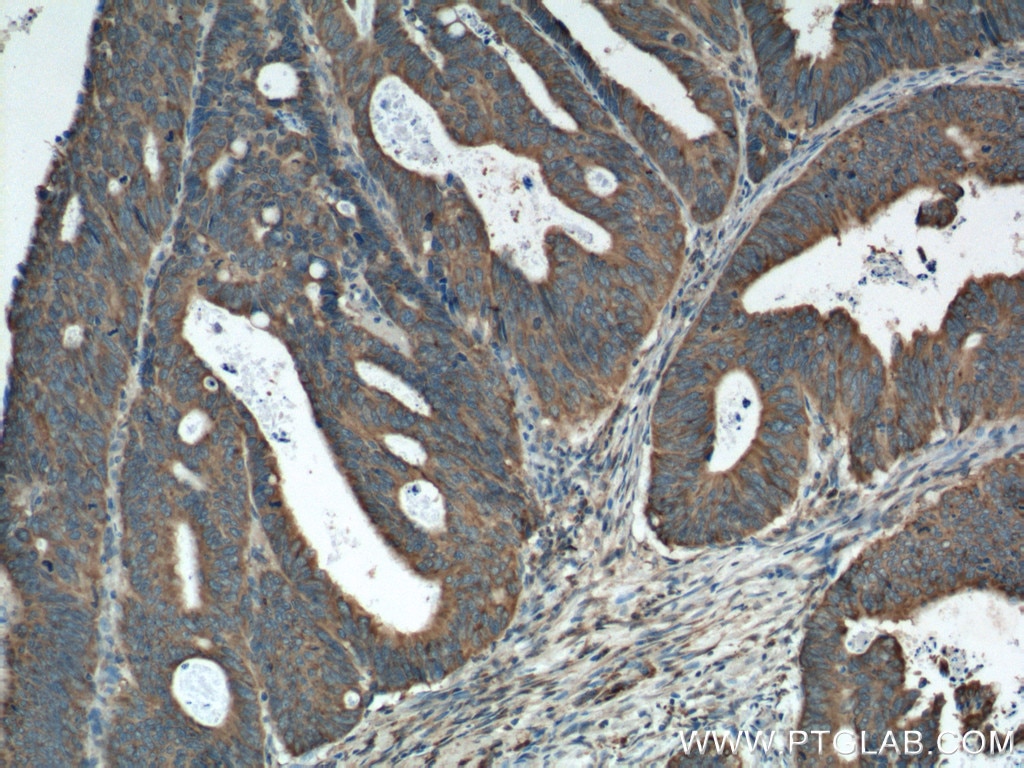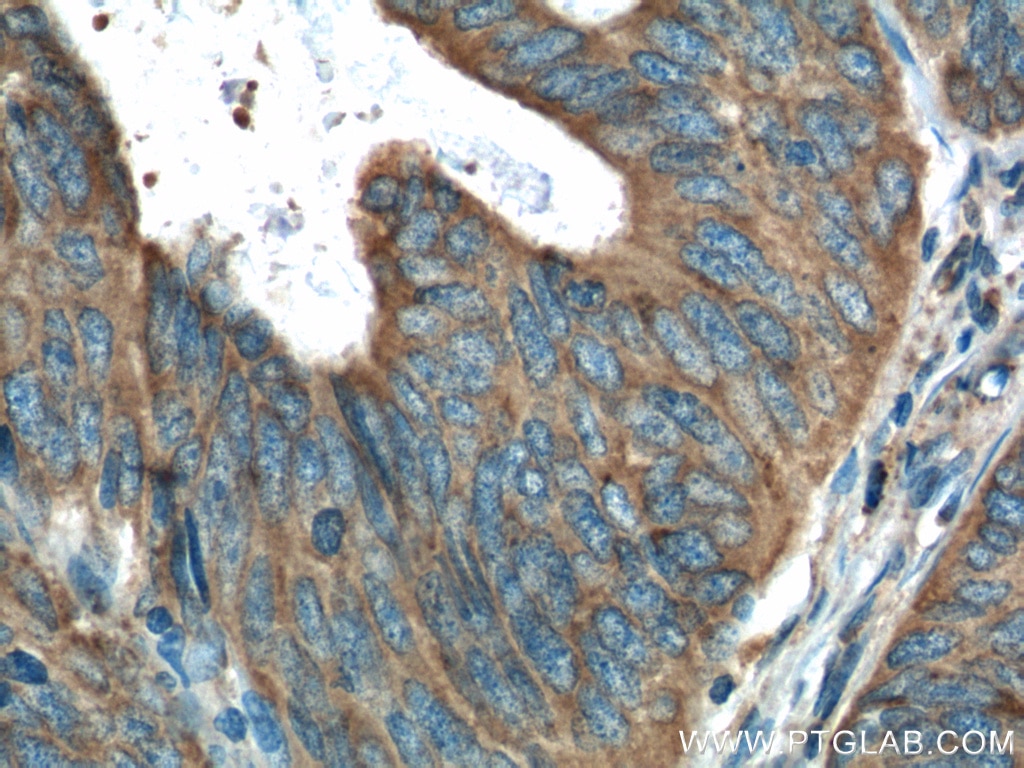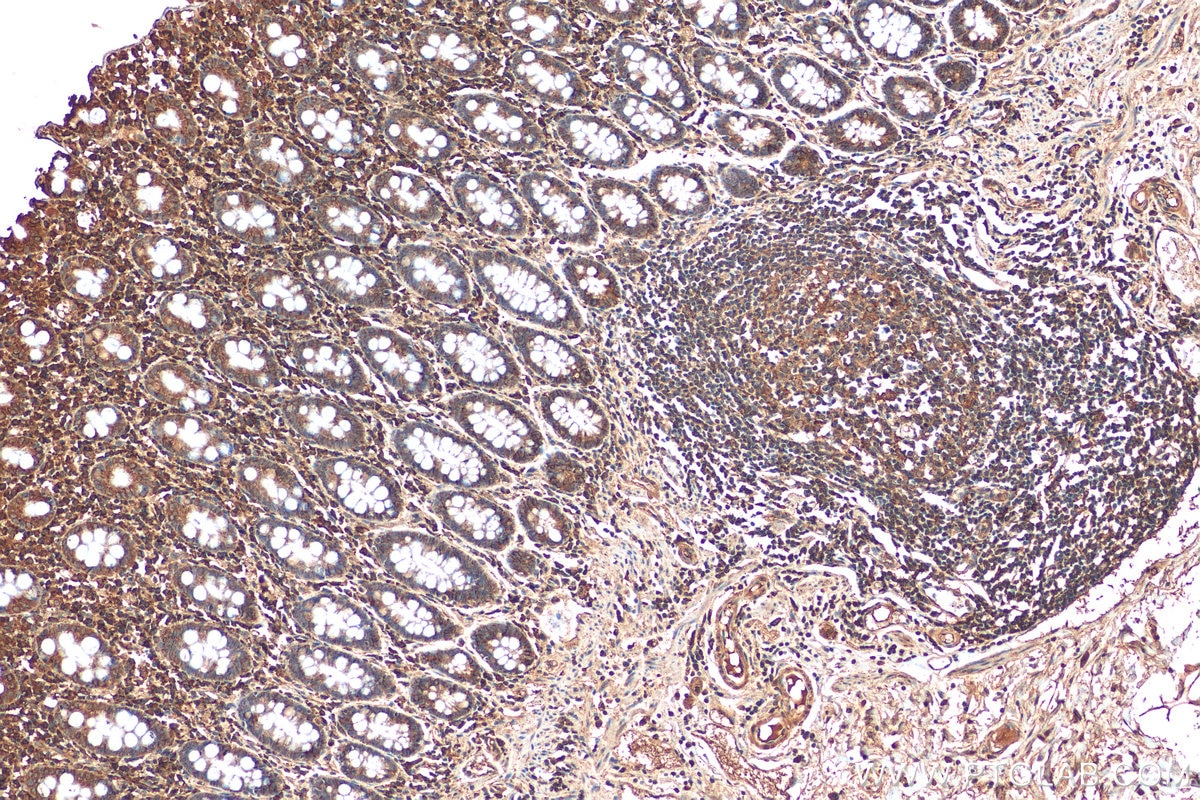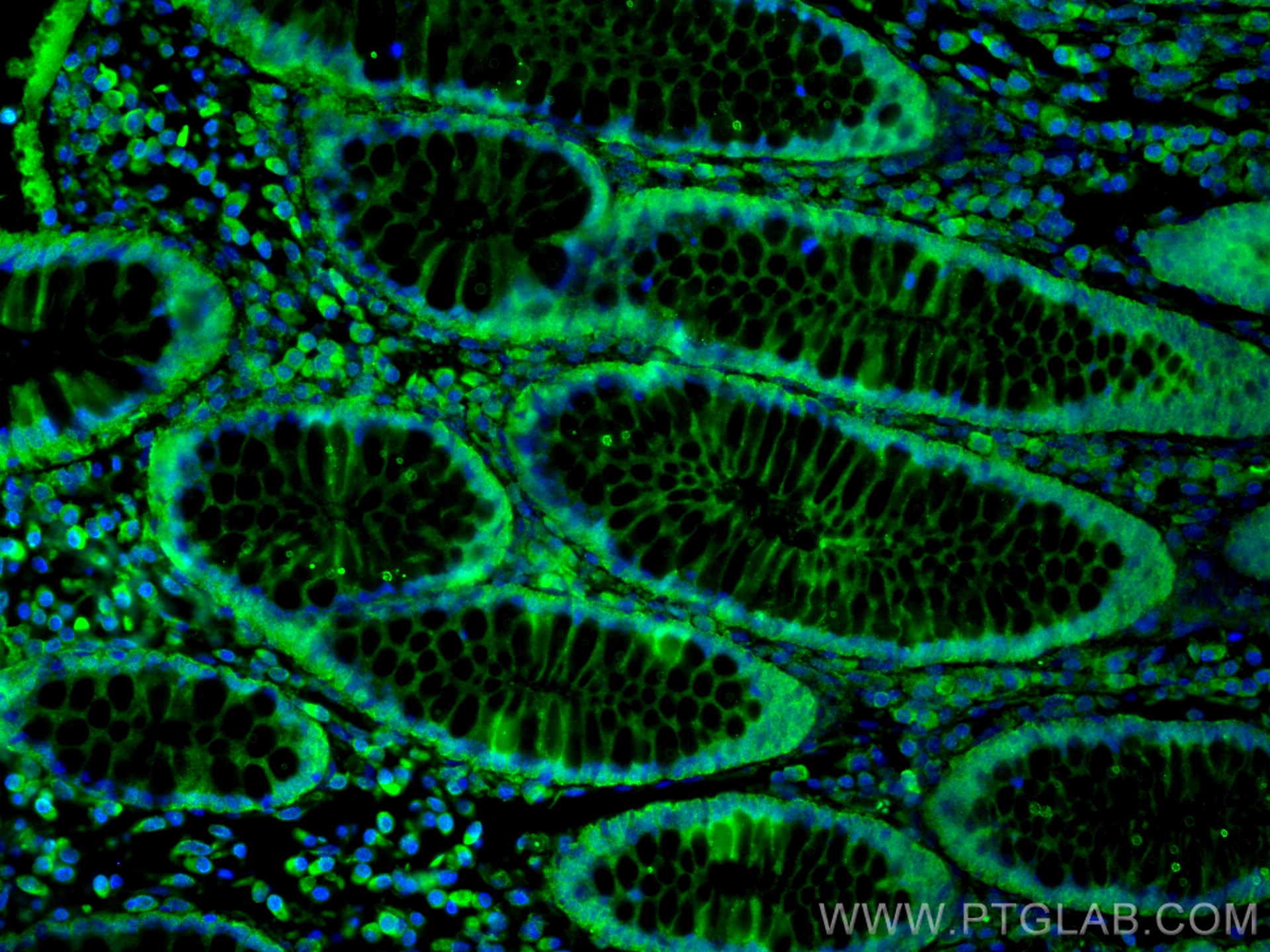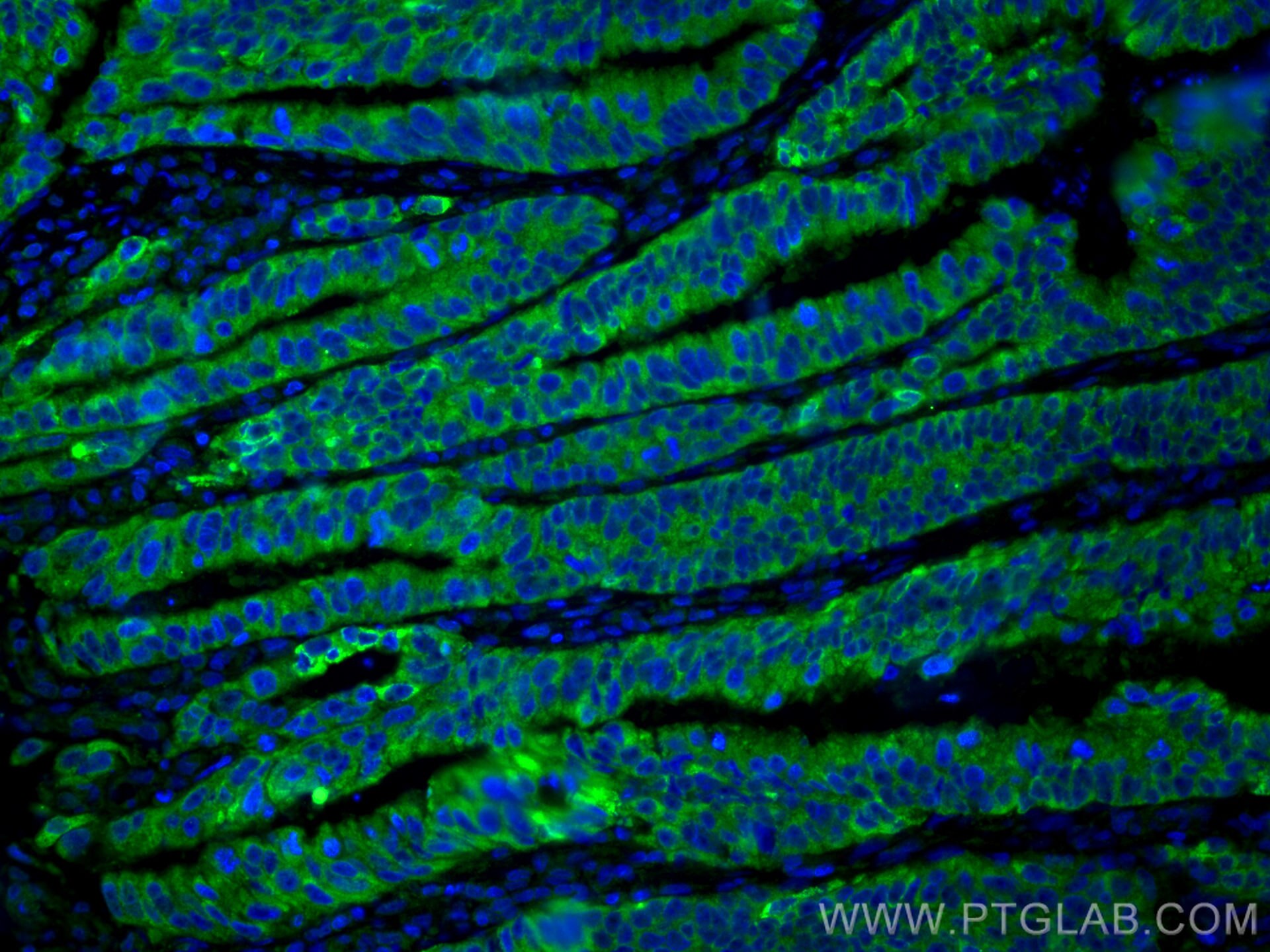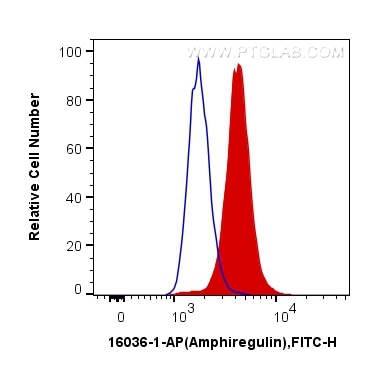Validation Data Gallery
Tested Applications
| Positive WB detected in | MCF-7 cells, A549 cells, HepG2 cells |
| Positive IP detected in | HepG2 cells |
| Positive IHC detected in | human stomach cancer tissue, human colon tissue, human colon cancer tissue Note: suggested antigen retrieval with TE buffer pH 9.0; (*) Alternatively, antigen retrieval may be performed with citrate buffer pH 6.0 |
| Positive IF-P detected in | human colon cancer tissue |
| Positive FC (Intra) detected in | HeLa cells |
Recommended dilution
| Application | Dilution |
|---|---|
| Western Blot (WB) | WB : 1:500-1:1000 |
| Immunoprecipitation (IP) | IP : 0.5-4.0 ug for 1.0-3.0 mg of total protein lysate |
| Immunohistochemistry (IHC) | IHC : 1:50-1:500 |
| Immunofluorescence (IF)-P | IF-P : 1:50-1:500 |
| Flow Cytometry (FC) (INTRA) | FC (INTRA) : 0.20 ug per 10^6 cells in a 100 µl suspension |
| It is recommended that this reagent should be titrated in each testing system to obtain optimal results. | |
| Sample-dependent, Check data in validation data gallery. | |
Published Applications
| KD/KO | See 3 publications below |
| WB | See 23 publications below |
| IHC | See 5 publications below |
| IF | See 6 publications below |
| IP | See 2 publications below |
Product Information
16036-1-AP targets Amphiregulin in WB, IHC, IF-P, FC (Intra), IP, ELISA applications and shows reactivity with human samples.
| Tested Reactivity | human |
| Cited Reactivity | human, mouse, rat |
| Host / Isotype | Rabbit / IgG |
| Class | Polyclonal |
| Type | Antibody |
| Immunogen | Amphiregulin fusion protein Ag8907 相同性解析による交差性が予測される生物種 |
| Full Name | amphiregulin |
| Calculated molecular weight | 252 aa, 28 kDa |
| Observed molecular weight | 43 kDa |
| GenBank accession number | BC009799 |
| Gene Symbol | Amphiregulin/AREG |
| Gene ID (NCBI) | 374 |
| RRID | AB_2227602 |
| Conjugate | Unconjugated |
| Form | Liquid |
| Purification Method | Antigen affinity purification |
| UNIPROT ID | P15514 |
| Storage Buffer | PBS with 0.02% sodium azide and 50% glycerol , pH 7.3 |
| Storage Conditions | Store at -20°C. Stable for one year after shipment. Aliquoting is unnecessary for -20oC storage. |
Background Information
Amphiregulin (AREG) is one of the ligands of the epidermal growth factor receptor (EGFR). AREG plays a central role in mammary gland development and branching morphogenesis in organs and is expressed both in physiological and in cancerous tissues. The AREG protein is synthesized as a 252-amino acid transmembrane precursor, pro-AREG. At the plasma membrane, pro-AREG is subjected to sequential proteolytic cleavages within its ectodomain and is then released as the soluble AREG protein. Depending on the cell type and microenvironment, AREG can be produced in multiple cellular and mature forms using alternative pro-AREG cleavage sites and glycosylation motifs. Post-translastional modfications of 50-kDa pro-AREG produces a major soluble 43-kDa form, 28-, 26-, 16-kDa membrane anchored forms, and soluble 21-, 19-, and 9-kDa forms (PMID: 9642297).
Protocols
| Product Specific Protocols | |
|---|---|
| WB protocol for Amphiregulin antibody 16036-1-AP | Download protocol |
| IHC protocol for Amphiregulin antibody 16036-1-AP | Download protocol |
| IF protocol for Amphiregulin antibody 16036-1-AP | Download protocol |
| IP protocol for Amphiregulin antibody 16036-1-AP | Download protocol |
| FC protocol for Amphiregulin antibody 16036-1-AP | Download protocol |
| Standard Protocols | |
|---|---|
| Click here to view our Standard Protocols |
Publications
| Species | Application | Title |
|---|---|---|
Proc Natl Acad Sci U S A AhR controls redox homeostasis and shapes the tumor microenvironment in BRCA1-associated breast cancer. | ||
Cell Commun Signal BMAL1 ameliorates type 2 diabetes-induced cognitive impairment via AREG upregulation and PI3K/Akt/GSK-3β pathway activation | ||
Cell Biosci TPM2 attenuates progression of prostate cancer by blocking PDLIM7-mediated nuclear translocation of YAP1 | ||
Aging Cell Targeting amphiregulin (AREG) derived from senescent stromal cells diminishes cancer resistance and averts programmed cell death 1 ligand (PD-L1)-mediated immunosuppression.
|
